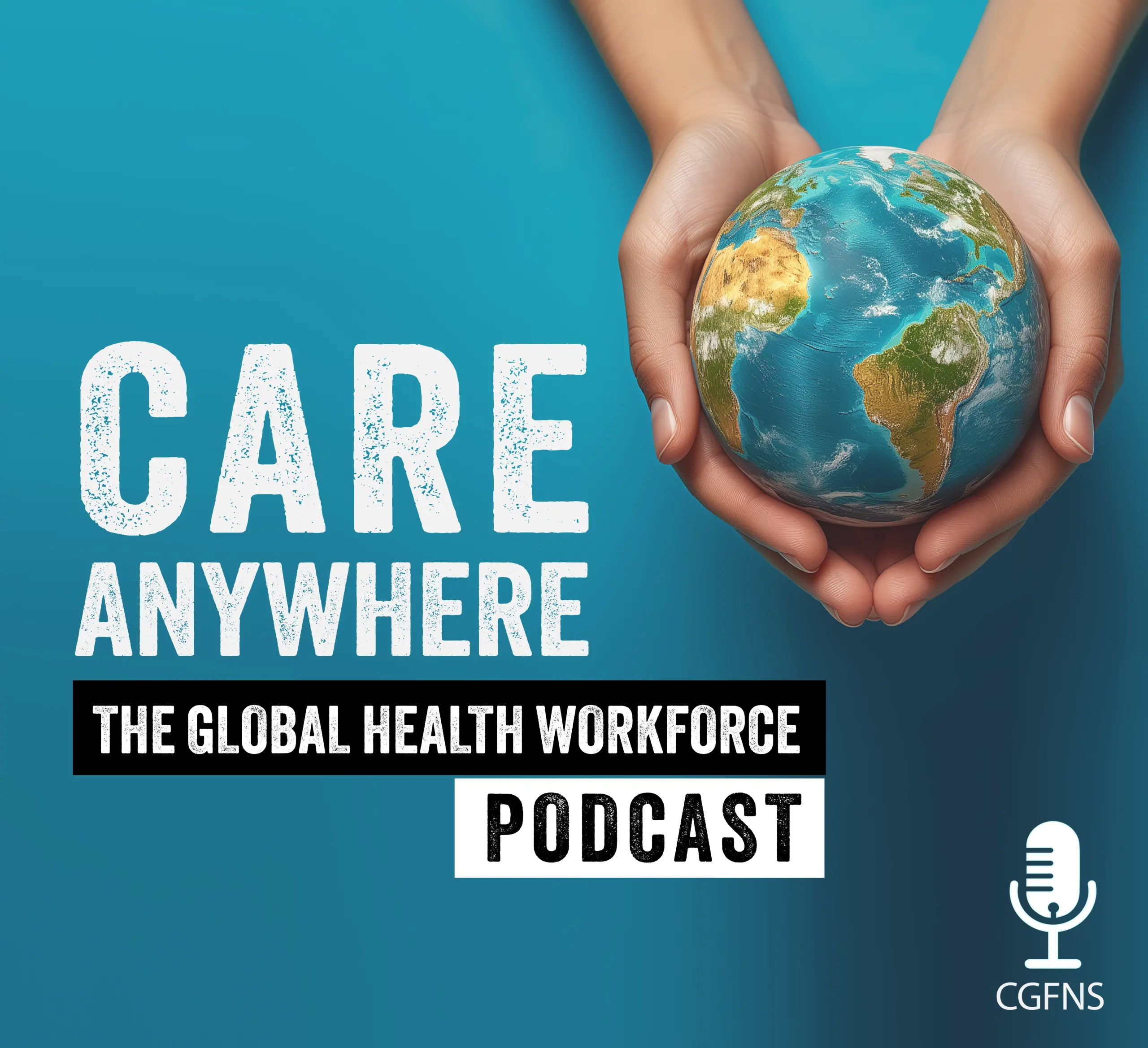The High Stakes of Authenticating Professional Credentials
In the latest episode of Care Anywhere: The Global Health Workforce Podcast, host Lea Sims delves into the critical issue of credential fraud with CGFNS experts Emily Tse and Jason Wessel. Credential fraud, defined as intentional deception to falsely claim qualifications, poses a significant threat to healthcare systems and patient safety. The discussion highlights the motivations behind fraud, including career advancement shortcuts and the desire to bypass proper training, emphasizing the downstream impact on patient care and trust in the global health workforce.
Emily and Jason share insights into the challenges of fraud detection and prevention. They emphasize the importance of understanding legitimate credentials, verifying primary sources, and leveraging tools like CGFNS’s Credential Transfer Portal to ensure data integrity. Diploma mills and accreditation mills also emerge as growing concerns, creating additional layers of fraud and confusion. The guests stress the need for vigilance and caution when evaluating institutions and credentials, noting the potential legal and reputational risks associated with fraudulent documents.
The role of technology in fraud prevention is a key focus. While digitization has streamlined credential access, it has also introduced new opportunities for falsification. Emily highlights how CGFNS employs secure portals and rigorous verification processes to combat fraud, while Jason underscores the need for continuous diligence as fraudulent methods evolve.
Lea concludes by emphasizing that credential fraud has a direct impact on patient safety, making vigilance in credential verification essential. Ensuring healthcare workers are properly trained and qualified safeguards not only the workforce but also the quality of care delivered to patients worldwide. This episode underscores the importance of rigorous standards, collaboration, and technology in building trust and integrity across the global healthcare system.




